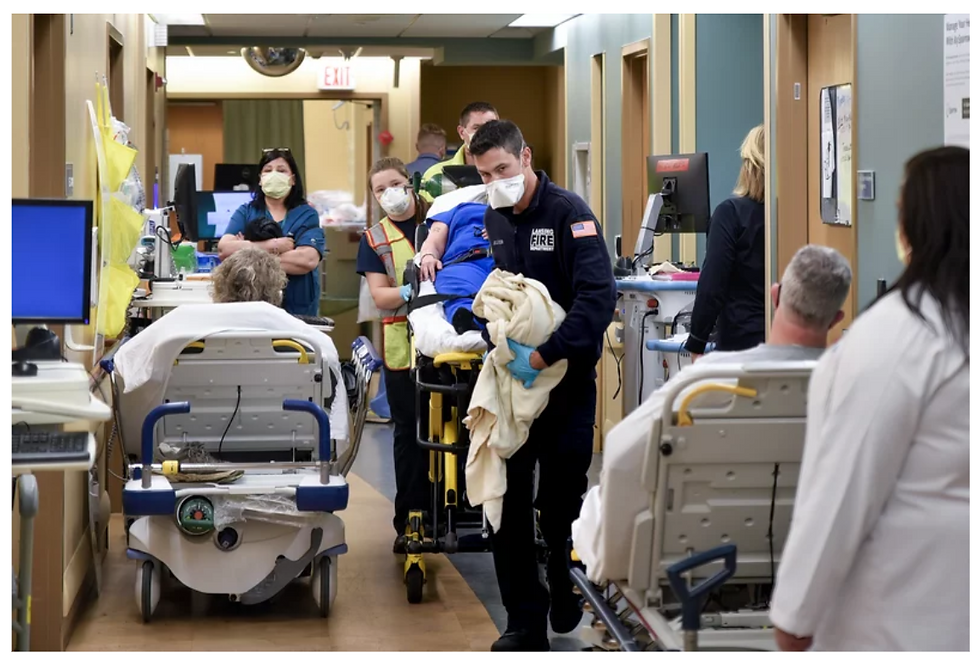Celebrating National Nurses Week with Corstrata
- katherinepiette
- May 10, 2017
- 3 min read
Updated: Mar 2, 2021
We're halfway through National Nurse's Week, and we at Corstrata want to take the time to acknowledge our wonderful nursing staff for all the incredible expertise they provide. We asked each member of our nursing staff how they got involved in wound care and what they love most about their jobs. Here's what they had to say:
Carolyn Cuttino:
Why do we love working with Corstrata? It gives you an opportunity to make a difference in what wound care/healthcare should and could be...not just what is wrong with the way we practice and deliver care. Second thing is the people: it's great working with a talented, dedicated, and a very smart group of people who really care about what is best practice and quality care.
Why do you love being a wound care nurse? It affords one the opportunity to advance the practice of wound care by offering many career options: many choose to stay at the bedside; some choose industry; some may choose management; however the opportunity to always put the patient in the center of what we do is there...no matter what site of service we practice in!
Jan Cuzzell:
Why do you love working with Corstrata? Corstrata's culture encompasses values that I hold dear to my heart... a desire to help others in need, a true commitment to quality outcomes, a spirit of adventure, and a collective willingness to accept today's challenges in hopes of a better tomorrow. For me, working with Corstrata has been and continues to be an exciting spiritual journey into the unknown. I'm amazed by the diversity of talent in the organization, all driven by a collective vision of telemedicine as a value-based platform to deliver wound care. (On a lighter side...Since Corstrata is still a relatively new organization, I occasionally feel as if I'm part of a large, happy family trying to raise a two year old.)
Why do you love being a wound care nurse? I developed a love of wound care very early in my career and have never lost my passion for it. Like all nurses, I love to fix things. I'm continually fascinated by the complexity of the immune system and our body's ability to heal itself under the right circumstances. The knowledge base I've developed after years of clinical practice in both acute and long term care settings continues to feed my passion for helping others with complex, challenging wounds.
Susan Wickard:
Being on the Corstrata team not only allows me to work with the best of the best, but allows me to touch first hand the lives of so many people with various types of wounds. So often they are taking care of themselves with very little support. We are able to provide the support and expertise in helping them achieve their highest potential.
It is such a privilege to be a wound care nurse and assist so many in healing their wounds. What a joy to help so many!! I love being a nurse!!!!
Myra Varnado:
Working for Corstrata is probably one of the most challenging and exciting professional experiences in my 37 year nursing career. As a CWOCN, I am challenged to apply the same clinical standards and practices in a new and different way that can support a remote clinical model. I greatly enjoy investigating new technologies being developed for the telemedical patient experience, as well as identifying novel ways to provide meaningful insight and clinical expertise for patients. At Corstrata, we really make a meaningful difference for not only patients and caregivers, but also for our clinical partners in health care settings such as Home Care and Long Term Care. We are a crucial component toward extending expertise in a high quality, cost effective manner.
Working as a vascular nurse in the O.R. and then as a Diabetes Educator really prepared me to pursue post-graduate WOC Nursing education. I became a wound care nurse because I wanted to help prevent lower extremity amputations - that was of paramount importance to me. In the O.R., I was the person who received the amputated limb after it was removed. It was a stark realization to me that not enough was being done to prevent this horrible tragedy from happening to so many people. To prevent ANY amputation became critically important to me. Lucky me! I had the good fortune to work with and be trained by the very folks who completed so much of the LEAP (lower extremity amputation prevention) research. This incredibly rich educational and clinical experience made my goal a reality of the highest order! In my role with Corstrata, I now enjoy the unique opportunity to extend much of the same research that we generated in our LEAP program into a real life clinical model that is both clinically and fiscally efficacious, and can help patients ANYWHERE!







Comments